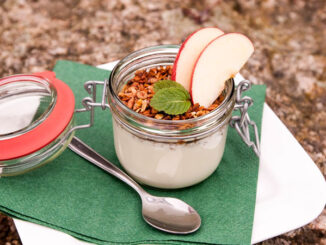
The most common answer you will get whenever you ask the question “Why is Kefir the best probiotic?” would be: because it contains the largest number of probiotic bacteria compared to any natural probiotic product that has ever existed.
Right! However, while this is undoubtedly the truth, it is not the whole truth because there’s much more to be said about it, so let’s dig deeper.
Why Kefir may be called a “Broad-spectrum” probiotic?
Probiotics have a wide variety of positive effects on your health, but all probiotics are not equal!
Each probiotic has a very distinct impact on specific functions of your body and may have a healing effect on particular health conditions. So, to target your specific health-related problem, you need to know which type of probiotic to take.
That is particularly important when you take commercially available probiotics in the form of pills. Each of these commercial food supplements contains a specific range of probiotic bacteria targeting a particular medical condition.
Unlike these probiotic food supplements, Kefir typically contains more than 50 different strains of probiotic bacteria, and the ones your health condition may require are pretty unlikely to be absent in Kefir.
You may have heard about the so-called broad-spectrum antibiotics. These antibiotics act against a broader range of disease-causing bacteria. In contrast – narrow-spectrum antibiotics are only effective against a specific group of harmful bacteria.
The same logic applies to probiotics. While the commercial probiotic food supplements may be called “narrow-spectrum probiotics,” Kefir can fairly be nominated as the most “broad-spectrum probiotic” that humankind has ever witnessed.
Kefir not only contains the highest number of beneficial bacteria and yeast compared to any other probiotic food, but some of the substances contained in Kefir have direct healing properties for a wide range of diseases.
Direct healing effects of Kefir
As we already said numerous times throughout this website, Kefir has many positive effects on human health. However, some of the probiotic bacteria found in Kefir also have a direct and distinct positive impact on specific functions in the human body.
For instance, the bacteria in Kefir called Lactobacillus Plantarum has a hypocholesterolemic effect, meaning that it directly decreases cholesterol levels in the blood and decreases blood pressure. Its substrain called Lactobacillus Plantarum Lp27 has, on the other hand, the impact of inhibiting cholesterol absorption, thus reinforcing the initial hypocholesterolemic effect.
Another example: the substrain of Lactobacillus lactis called CIDCA 8221 has a cytotoxic effect on Clostridium difficile – a harmful bacteria that infects the bowel and causes diarrhea commonly attacking people who have recently received antibiotic treatment.
And as the last example, Kefir contains one crucial essential amino acid called Tryptophan, which is also considered a precursor of Serotonin, directly impacting our attitude, feelings, and happiness.
Probiotic effects of Kefir
Balances and harmonizes gut’s microbiome
One of the most important benefits that Kefir provides to your body is the balance it creates in your guts’ microbiome. Kefir balances the intestinal bacterial population, regulating and balancing its functions.
This bacterial population is like a mosaic, or puzzle, composed of many elements. If any of these “pieces of the puzzle” is missing, deserted space appears in the guts that almost immediately get populated with microorganisms that sometimes could be pathogenic and harmful. However, suppose we manage to constantly introduce beneficial bacteria into the intestines through probiotic food intake. In that case, we will decrease the chance of “freeing up” space for such pathogenic microorganisms.
That’s precisely what Kefir does! However, it not only supplies beneficial bacteria to our stomach and intestines, but these bacteria actually colonize the gastrointestinal tract and stay there much longer than the bacteria from any other probiotic food.
Colonizes the intestines
The probiotic bacteria of yogurt or buttermilk, for example, are “transient bacteria.” They stay in our gastrointestinal tract for up to 12 hours and get then discarded from the body. Unlike them, the Kefir bacteria tend to colonize the intestines, self-propagate and do their beneficial job for much longer periods.
As a result of balancing and harmonizing our guts microbiota, Kefir has many beneficial effects on our bodies.
Antibacterial and anti-inflammatory effects
Besides improving digestion and relieving any signs of constipation, Kefir also acts as an immune system’s modulator, has powerful antibacterial properties, plays a role in improving bone strength, controls cholesterol levels and blood pressure, helps weight control, and is also known to have anti-carcinogenic, anti-allergic, and anti-inflammatory effects.
Elixir of youth
The consumption of Kefir may be especially beneficial for older people. The antioxidizing and immunomodulatory properties of Kefir keep down the production of chemicals in our bodies that are usually related to aging. It is not by chance that the countries where Kefir is consumed the most, such Turkey, Mongolia, Tibet, or Russia, also have the highest number of centenarians. “The elixir of youth” should probably be the other name of Kefir.
Effects of Kefir on the gut-brain axis
The gut-brain axis (also known as GBA) is bidirectional communication between the central nervous system and the enteric nervous system, which is the nervous system of the bowel.
This gut-brain axis directly links our intestinal functions to our brain’s emotional and cognitive functions.
Kefir may directly affect our mood and feelings
To put it another way, what happens in our guts directly affects our thoughts, emotions, and mood, but also the other way round – our thoughts and feelings directly affect our stomachs.
An in-depth study in 2015 showed compelling evidence that the balance in the guts microbiota may directly influence anxiety and depressive-like behaviors. Moreover, dysbiosis of the guts is a possible reason for autism, as autistic patients usually have specific alterations in their gastrointestinal microbiota.
The study concluded that the guts’ microbiome interacts with the central nervous system by regulating brain chemistry and influencing neuro-endocrine systems associated with stress response, anxiety, and memory function.
May prevent Alzheimer’s disease
Another international research team has found that intestinal microbes that metabolize tryptophan – an essential amino acid found in Kefir – secrete small molecules called indoles, which stimulate the development of new brain cells in adults.
The research demonstrated that indole-mediated signals elicit the formation of new neurons in the hippocampus of adults, an area of the brain involved in memory and learning. And memory loss is considered an early sign of Alzheimer’s disease.
Along with much other evidence, these studies demonstrated that the health of our guts affects the way we eat and metabolize food and the way we feel, the way we think, the way we behave, or briefly – the way we live.
Kefir is by far the richest source of probiotics creating the vitally important microbial balance in our guts that affect our entire lives.
Summary
The #1 reason why Kefir is the most valuable addition to your diet is hidden in the fact that it contains the largest number of probiotic microorganisms that food can provide. For this reason, Kefir is also called “a broad-spectrum probiotic”. It contains a well-balanced symbiotic system of up to 50 bacterial and yeasts strains that can’t be matched by even the most powerful commercial probiotic pills.
Along with its unreached probiotic powers, Kefir also has a long list of direct healing effects on our bodies. It directly decreases cholesterol levels, controls blood pressure, and has positive effects on a series of serious health conditions like diabetes, SIBO, IBS, osteoporosis, etc. Kefir also contains the amino acid Tryptophan that is known to positively influence anxiety and depressive syndromes and is supposed to prevent early symptoms of Alzheimer’s disease.
Related questions
- Do Kefir grains and Kefir starters produce equally rich in probiotics Kefir? Not really. The process lyophilization (or freeze-drying) used to produce Kefir starters may partially inhibit the probiotic powers of the resulting product. That is one of the reasons why we always prefer using natural Kefir grains, instead of commercial Kefir starters.



